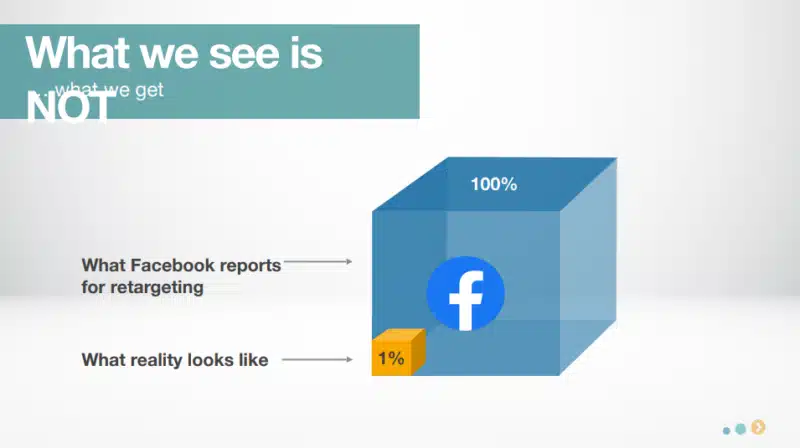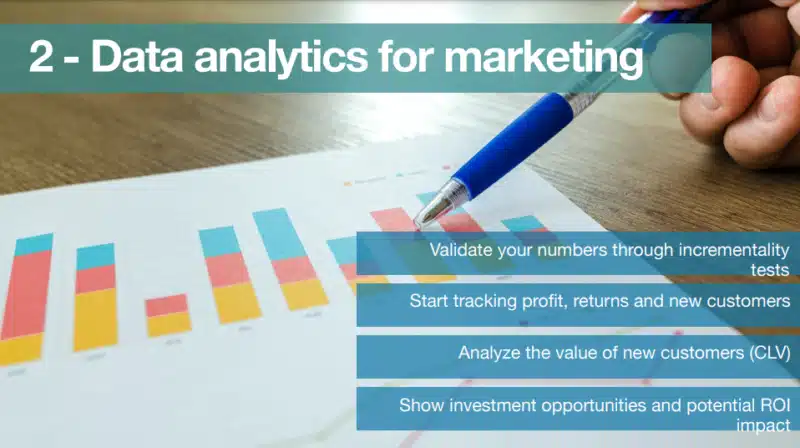How paid search marketers can address brand measurement challenges and grow in their careers
Brands are facing huge data measurement challenges. At SMX Next, Pascal Skropke and Andreas Reiffen show how paid search marketers can address them — and meet career goals along the way.
Climbing the corporate ladder isn’t always the most straightforward process, especially for paid search marketers. Professionals seeking to grow their careers need to map out a path, accounting for their unique roles within their organizations.
“The most important thing is to look at your current position,” said Pascal Skropke, CMO of Design-Bestseller, at SMX Next. “Not everybody has the opportunity to work at a fast-growing e-commerce company or startup.”
He added, “Look at where you are and find out if it’s possible to take steps within your company — and understand what your company needs to succeed.”
Skropke says marketers seeking to climb this ladder should establish an “anchor point” within their company — the cross-section of their company’s needs and their career goals. One of these points is the issue of campaign advertising measurement — the lack of direction, accurate data models, and resources for many brands in the digital retail space.
Here are some of the key measurement challenges paid search marketers can help their companies with.
Address issues in advertising spend and ROI
“Performance advertising is killing it for most retailers,” said Andreas Reiffen, founder and CEO of Crealytics, in the same presentation. “At the same time, we see legacy retailers falling behind.”
Despite impressive increases in compound annual growth rate for online retailers such as Etsy, Boohoo, and Farfetch (44%, 55%, and 64%, respectively,), more traditional retailers are falling behind, even in the e-commerce sphere. Reiffen noted that although some of these legacy brands are meeting their KPIs, their slow overall growth could be a major issue down the road.
“The question we need to ask ourselves is, ‘Why am I seeing great results when the company isn’t growing?’” said Reiffen. “The issue we are all facing today is that the measurement is broken. The methodology that we use to track conversions and conversion values — one click, last click, or many clicks — is misleading us because people don’t necessarily buy when they click on ads.”
He added, “They might have happened to click on ads when they purchased, but there’s no direct correlation.”

Inaccurate measurement models can disrupt return on ad spend (ROAS) projections, making it that much harder for legacy brands to stay competitive.
Paid search marketers and managers can help executives of legacy-style brands address these discrepancies by optimizing paid advertising spending — adopting more accurate tracking models and allocating spend more effectively. This can help marketers establish more authority within their brand and encourage executives to lean on them for their expertise in the future.
Establish accurate data analytics systems
“We’re seeing big companies like the Boston Consulting Group and McKinsey building departments for data analytics,” said Skropke. “This is a sign that analytics is not just something that the data nerd is working on, but something that’s now on C-level.”

Data matters, not just to search marketers, but to all those in brand leadership positions. The sooner search marketers can encourage their managers and company executives to consult paid media analytics when making business decisions, the more respect they’ll garner from those same decision-makers.
“If you work in a paid search manager role on an operation level, it’s rare that you would be asked to do these things,” said Reiffen. “But it’s a major problem that is present now on the C-level.”
He added, “Measurement is the most important thing to get right, so that’s where we see a good opportunity to step up and challenge the numbers.”
Create a growth strategy and align target market goals
Inaccurate measurement clearly causes issues in advertising ROI and data analytics. Unfortunately, it can also disrupt brand growth by derailing target market strategies.
“Wrong targeting leads to poor results,” said Skropke. “So, we should always ask what’s driving the value for the business. Is this the top-line revenue or is it the profitable acquisition of new customers?”

Whether it’s targeting a disproportionate amount of existing customers or pushing products that have lower than average profit margins, C-level executives will inevitably get parts of the targeting and growth strategy wrong. This is where paid search managers can share their expertise and help leadership set clear, actionable goals.
“So, where’s the opportunity here?” asked Reiffen. “It’s in taking the time to explain this, giving [leadership] examples.”
He added, “Start stepping up and explaining that it’s the targets themselves that are limiting performance.”
Opinions expressed in this article are those of the guest author and not necessarily Search Engine Land. Staff authors are listed here.
Related stories